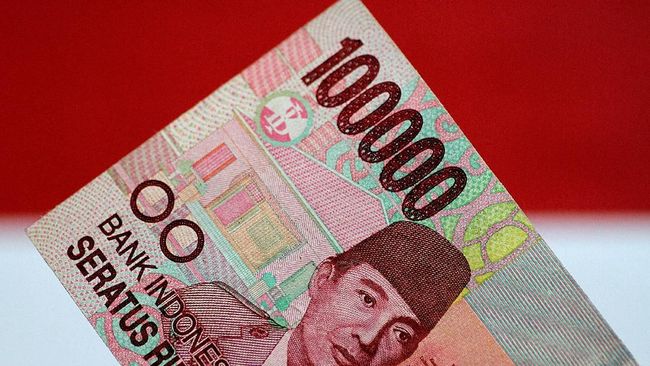- Added CIMB Niaga projections
Jakarta, CNBC Indonesia – It is estimated that Bank Indonesia (BI) will continue to hold the benchmark interest rate. It seems likely that the stability of the rupiah exchange rate will be the main factor that makes MH Thamrin reluctant to lower the BI 7 Day Reverse Repo Rate.
BI will hold a Board of Governors Meeting (RDG) for the period of October 2020 on 12-13 October. Market consensus gathered by CNBC Indonesia estimates that Governor Perry Warjiyo and colleagues will maintain the benchmark interest rate at 4%.
|
Institution |
BI 7 Day Reverse Repo Rate |
|
Citi |
4 |
|
ING |
4 |
|
Moody’s Analytics |
4 |
|
DBS |
4 |
|
Mirae Asset |
4 |
|
Permata Bank |
4 |
|
Maybank Indonesia |
4 |
|
Standard Chartered |
4 |
|
ANZ |
4 |
|
CIMB Niaga |
4 |
If this consensus materializes, then the benchmark interest rate will not move for four consecutive months. The benchmark interest rate at 4% is the lowest since the BI 7 Day Reverse Repo Rate was used to replace the BI Rate.
It is the rupiah that will make BI hesitant to lower the benchmark interest rate. The country’s currency has indeed tended to strengthen recently. But that happened after going through the ‘bloody’ third quarter of 2020.
During July-September 2020, the rupiah collapsed 4.65% in front of the United States dollar (US). The rupiah is the worst performing currency in Asia.
Anthony Kevin, an economist at Mirae Asset, assessed that in the future uncertainty will still be high, so BI seems to choose to be careful. There are at least four things that are the source of this uncertainty.
“First is the ratification of the omnibus law (the Job Creation Law) which has resulted in rejection. Second is the possibility of changes to the BI Law which could change the mandate and operations of the central bank. Third is when the peak time for the corona virus pandemic (Coronavirus Disease-2019/ Covid-19) in Indonesia. The fourth is the US presidential election (pilpres), “said Kevin in his research.
Radhika Rao, an economist at DBS, said that the ratification of the Job Creation Law had a positive impact on the rupiah. However that only lasted a moment. Going forward, uncertainty will still be high.
“Indonesian government bonds still generate a large demand. However, BI itself is still pushing the demand. Foreign ownership in Government Securities (SBN) fell from 36.8% in January 2020 to 28% in September 2020,” wrote Rao in his research. .
Meanwhile, ANZ believes that BI’s decision to maintain the benchmark interest rate does not mean that it does not adopt a loose monetary policy. The accommodative policy is now being pursued through the quantity route (quantitative easing).
“The decision to maintain the benchmark interest rate does not mean that BI is moving away from accommodative monetary policy. However, BI has changed its composition from lowering interest rates to quantitative easing,” said ANZ research.
– .


